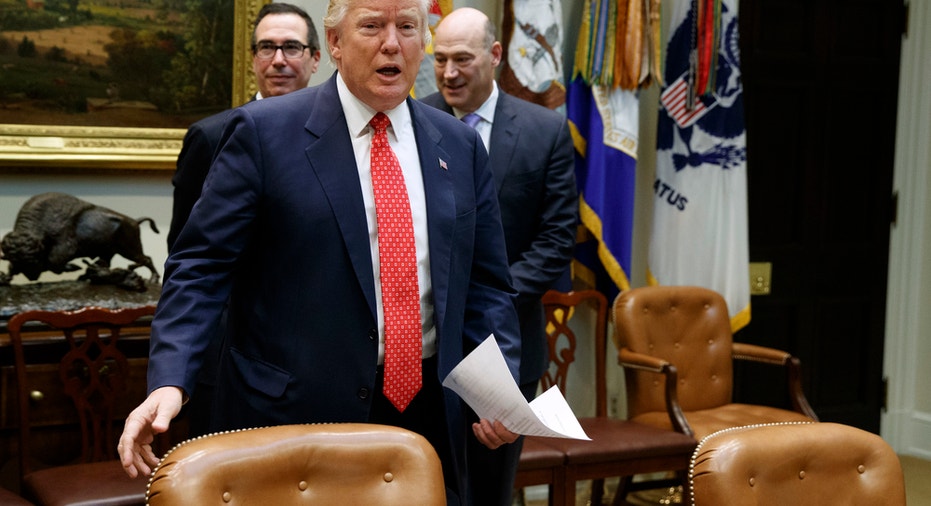Trump's Tax Duo to Brief Senior U.S. Congress Leaders on Plan

President Donald Trump's two tax policy chiefs were slated to go to Capitol Hill late on Tuesday to meet with top lawmakers as Washington dug for details on an impending Trump tax plan.
Due out on Wednesday, the plan was expected to include only broad principles of tax changes, not formal legislation, and a proposal to slash the U.S. corporate income tax rate, with additional components still the subject of much speculation.
Some analysts viewed the White House plan, likely to fall well short of a full-scale tax reform, as reducing prospects for a thorough tax code overhaul in 2017.
Since it will clash in some ways with a broader tax plan shaped months ago by House of Representatives Republicans, the Trump document may complicate consensus-building, analysts said.
Others said tax reform's chances will not be greatly frustrated. One veteran tax lobbyist said Congress and the White House were still likely to strike a tax deal this year.
Simply by releasing a plan Trump is demonstrating that he is “interested, engaged” and even if it does not match the House plan, it will spark further discussions, the lobbyist said.
Lawmakers were waiting to see whether Trump will include items that could attract Democratic votes, such as a proposal to fund infrastructure spending or a child-care tax credit as proposed by his daughter Ivanka.
Treasury Secretary Steven Mnuchin and National Economic Council Director Gary Cohn, both veterans of investment bank Goldman Sachs, were scheduled to present the plan at the office of Senate Republican leader Mitch McConnell.
Meeting Mnuchin and Cohn along with McConnell will be House Speaker Paul Ryan and the chairmen of the Senate and House tax committees: Orrin Hatch and Kevin Brady, respectively.
Trump has directed aides to move quickly on a plan to cut the corporate income tax rate to 15 percent from 35 percent, a Trump administration official said on Monday.
Analysts said the Trump plan could also cap the individual top tax rate at 33 percent, repeal the estate and alternative minimum taxes, and cut taxes for the middle class.
Importantly, the Trump plan was not expected to include any specific proposals for raising new revenues to offset revenue losses that would result from tax cuts. Mnuchin has said Trump's tax plan will "pay for itself" by stimulating economic growth.
The House Republican plan, championed by Ryan and Brady, did include such "pay-fors," but they were controversial, divided the business community and undermined support for the plan.
One of these "pay-fors" was a proposed "border adjustment" tax that would cut taxes on exports and raise them on imports. Analysts said this was not expected to be in Trump's document.
The Ryan-Brady plan proposed a 20-percent corporate tax rate. Many U.S. corporations, especially large multinationals, already pay well below the statutory 35-percent tax rate, but have been campaigning for a formal rate cut for many years.
Trump's plan may also include a proposal to let multinationals bring foreign profits being held abroad into the United States at a steeply discounted income tax rate, another long-standing goal of the corporate tax lobbying community.
Any changes in the tax code must be approved by Congress, which has a Republican majority in both chambers.
Democratic Senator Debbie Stabenow, a member of the Senate tax panel, was skeptical about the Trump plan. "If they are only talking about the corporate rate and not helping small business, I think that would certainly for me be a non-starter," she said.
"I've seen no plan in the past that could get to that (15 percent) level without seriously adding to the deficit."
(By Susan Cornwell and Ginger Gibson, Additional reporting Richard Cowan; Editing by Kevin Drawbaugh and Nick Zieminski)



















